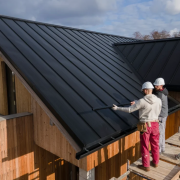Electrical inspections are conducted by licensed professionals to assess the safety and condition of a home’s electrical system. When it comes to electrical inspections, the reasons as to why someone may need one vary. An electrical inspection is typically required when purchasing a home, before starting a major renovation, or for insurance purposes. Some homes may need a yearly inspection, especially if they are 50 years or older. Meanwhile, newer homes should be inspected every 3-5 years.
Tips and Best Practices
As a homeowner, preparation before an electrical inspection is critical. Here are some tips and best practices to help you prepare for an electrical inspection.
1. Gather the Necessary Documents: Gather and organize all applicable documents, including electrical plans, permits, receipts for work completed, and manuals for electrical appliances and devices.
2. Make Things Accessible: Ensure the electrical panel, circuits, and outlets are easily accessible. It’s essential to label electrical panels, circuits, and outlets properly. Make sure to move any clutter and clear away any obstructions so the inspector can easily inspect the panel.
3. Test Outlets and Switches: Before the inspection, test all home outlets and switches to ensure they work correctly. If any devices are faulty, replace them before the inspection.
4. Do a Quick Self-Inspection: Check for any visible issues with wiring, such as damaged or exposed wiring, insulation, or frayed cables If you find any problems, address and repair them immediately.
What To Expect
During an inspection, a qualified inspector will assess and evaluate the electrical system’s condition to ensure it is safe and complies with local standards and electrical codes. The electrical inspector will perform a visual inspection, review any necessary documents, test the electrical components, and look for any signs of damage to the system and wiring. After the inspection, the inspector will create a detailed report outlining their findings. The report will include any violations, recommendations for corrective action, and a summary of the overall condition of the results.
Electrical inspections are essential for maintaining a safe and compliant home. Homeowners should ensure they gather the necessary documents, make electrical areas accessible, test out electrical components like outlets and switches, and do a quick inspection before the electrical inspection. Understanding and implementing these best practices contribute to a smooth inspection process and, more importantly, ensure the long-term safety and functionality of the home’s electrical infrastructure.
AJ’s Electrical serves customers across Vancouver and the Lower Mainland, helping them with their electrical needs. Their expert team has over 60 years of combined experience. They know what it takes to ensure safety, functionality, and efficiency for your home.













Comments